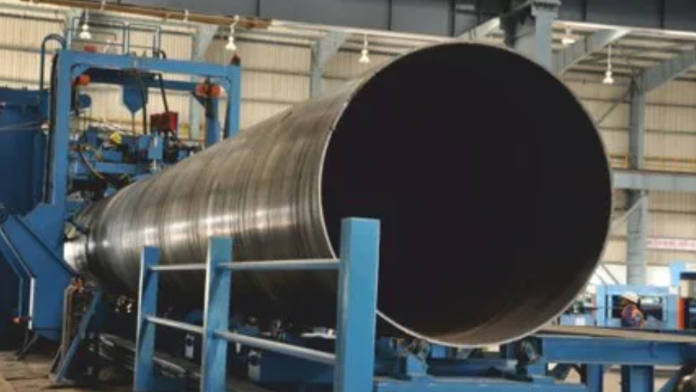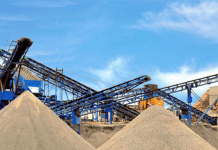Developed by the American Society for Testing and Materials (ASTM) to establish standards for carbon steel pipes, Grade B of ASTM A53 is a widely recognized specification. These pipes have strong mechanical qualities and come in seamless and welded forms. They have a minimum yield strength of 35,000 psi and a minimum tensile strength of 60,000 psi.
With a primary focus on applications in the construction, infrastructure, and oil and gas industries, astm a53 grade b pipes are used to transport water, gas, and oil. Strict testing requirements are imposed by the specification, which includes hydrostatic, nondestructive electric, and tensile testing to make sure the pipes satisfy the required standards for mechanical strength and dimensional accuracy.
Qualities Make Up ASTM A53 Grade B?
The specification for seamless, welded, black, and hot-dipped galvanized steel pipe is ASTM A53 Grade B. In the industry, it is one of the pipe specifications that is most frequently used for the transportation of gases and fluids. Key characteristics of Grade B of ASTM A53 are as follows:
Chemical Properties and Material Composition:
Carbon steel, the material used to make ASTM A53 Grade B pipes, ensures exceptional strength and longevity. Within predetermined bounds, the chemical composition consists of carbon, manganese, phosphorus, sulfur, copper, nickel, chromium, molybdenum, and vanadium.” The appropriate mechanical qualities and corrosion resistance are guaranteed by the carefully crafted composition.
Production Procedure:
The seamless technique or electric resistance welding (ERW) process is used in the pipe’s manufacture. The process of creating ERW pipes involves shaping steel coils into a tube shape and joining the edges with welding. Conversely, seamless pipes are produced without the need for welding, giving rise to a smooth and consistent end product. Pipes that satisfy the exacting specifications of Grade B of ASTM A53 are produced using both techniques.
Mechanical Characteristics:
Excellent mechanical qualities, such as high tensile strength, yield strength, and elongation, are displayed by Grade B of ASTM A53 pipes. Because of these qualities, they can be used in a variety of settings where dependability and structural integrity are essential.
Range of sizes and thickness of wall:
Wide-ranging wall thicknesses and diameters are offered by ASTM A53 Grade B pipes to meet a variety of application needs. Structures and pipelines may be designed and built efficiently thanks to this flexibility in thickness and size.
Testing under hydrostatic pressure:
One of the most important quality control methods is hydrostatic testing, which involves putting pipes through a water pressure test to make sure they are strong enough. Assuring the pipes can sustain the desired service conditions, this testing helps find any flaws in the system.
Surface Coating and Defense:
Black paint, galvanized coating, or other specialist coatings are some of the materials that ASTM A53 Grade B pipes can be coated with to improve their longevity and resistance to corrosion. By protecting the pipes from environmental elements, these coatings increase the pipes’ service life.
Final Finishes:
There are three alternative end finishes for ASTM A53 Grade B pipes: plain, threaded, and beveled. The application and the technique used to join or connect the pipes determine which end finish is best.
Versatility of Application:
Applications for ASTM A53 Grade B pipes can be found in many different industries, such as water supply, petrochemical, construction, and oil & gas. Their combination of strong mechanical qualities and resistance to a wide range of environmental factors accounts for their adaptability.
Adherence to Industry Standards:
The ASTM A53 Grade B criteria follow industry guidelines, guaranteeing that the pipes fulfill the necessary standards for mechanical and structural integrity. The infrastructure where the pipes are used is made safer and more dependable overall when these requirements are followed.
Economical Resolution:
At a competitive price range, ASTM A53 Grade B pipes provide durability and versatility, making them an economical alternative. They are a preferred option for enterprises looking for both dependability and economic efficiency because of their availability in a variety of sizes and ease of manufacture, which reduce costs in construction projects.
Final Thought
For a wide range of sectors, ASTM A53 Grade B is a dependable and adaptable option because it provides strong mechanical qualities, conformity to industry requirements, and affordability. Its broad range of applications and strict quality control procedures make it an essential part of infrastructure projects where long-term reliability and cost-effectiveness are crucial.









